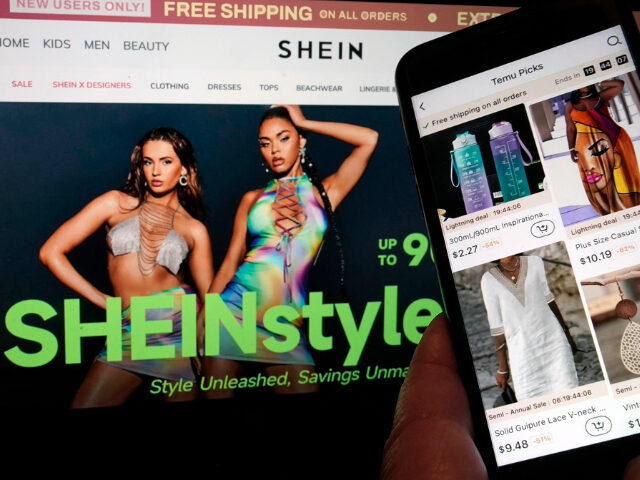South Korean officials announced on Wednesday that they discovered high concentrations of toxic substances in women’s accessories that Chinese e-commerce giants Shein, AliExpress, and Temu sell.
South Korea has been subjecting products from the fast-growing Chinese online retailers to closer scrutiny due to allegations of dodgy business practices, shoddy workmanship, and poor quality control.
The South Korean Fair Trade Commission (FTC) launched a major investigation of Temu and its South Korean subsidiary, Whaleco Korea LLC, in April. The investigative action was based on growing complaints about Temu’s product quality and marketing tactics.
The investigation grew to include weekly inspections of products from the Chinese e-commerce superstores, including products aimed at children. The latest round of inspections included 144 products from Temu, Shein, and AliExpress. Items from all three companies failed to meet South Korean quality standards.
Inspectors in Seoul found that shoes from Shein contained high levels of phthalates, a suite of “plasticizer” chemicals designed to make plastic more flexible.
In high concentrations, phthalates can damage human reproductive functions, with effects ranging from low sperm count to infertility and premature birth. One such chemical has been classified as a human carcinogen by the International Cancer Institute.
By subscribing, you agree to our terms of use & privacy policy. You will receive email marketing messages from Breitbart News Network to the email you provide. You may unsubscribe at any time.
South Korean inspectors said some of Shein’s shoes contained up to 229 times the legal limit on phthalates. Some Shein caps contained high levels of formaldehyde, and some of the company’s nail polish had more than 3.6 times the legal limit on dioxane, a potential human carcinogen that can be harmful to the liver.
Sandals from Temu were found to contain more than 11 times the maximum legal limit of lead in their insoles.
In July, South Korean inspectors found high levels of phthalates in children’s shoes, leather bags, and belts from Shein, plus high concentrations of lead in children’s watches and jewelry from both Shein and AliExpress. Almost half of the items from the three Chinese companies in the July round of testing were found to contain toxic chemicals.
In May, the Seoul Metropolitan Government found harmful substances in children’s leather items from Shein, including shoes. Industry analysts noted similar findings in Shein products that the United States, Europe, and Canada tested.
A tech industry publication called the Information discovered more contaminated products in August, including padded bumpers on cribs that the U.S. government banned in 2021 due to being a suffocation risk for babies, dangerous drawstrings on hoodies intended for very young children, and products for human babies that Shein evidently repurposed and marketed as pet toys.
A Temu spokesperson said on Wednesday that the company responded quickly to the warnings that the Seoul city government published by removing the affected products from its global marketplace and “enhancing our systems and guidance to merchants to ensure they comply with safety standards and local regulations.”
Critics of China’s “fast fashion” retail websites say they rely excessively on poorly supervised third-party suppliers. Some of those suppliers claim the e-commerce companies treat them in an abusive and exploitative manner, such as eliminating their profits with unreasonable return policies.
Another complaint about the fast fashion industry is that it evades customs rules and inspections by micro-shipping minuscule parcels directly to individual customers. These micro-shipments fall beneath the value limit for inspections to enforce rules — like the Uyghur Forced Labor Protection Act (UFLPA), a U.S. law banning imports tainted by forced labor from the oppressed Uyghur Muslims.

COMMENTS
Please let us know if you're having issues with commenting.